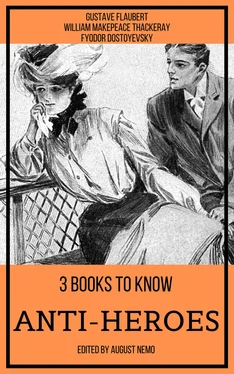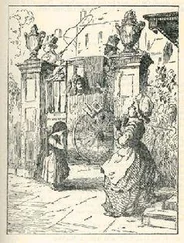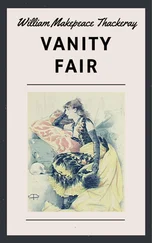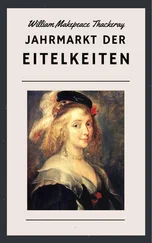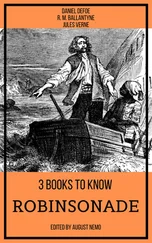Though my intimacy with the knight was considerable, for a long time I never penetrated into any other apartments of his hotel but those which he himself occupied. His lady lived entirely apart from him; and it is only curious how they came to travel together at all. She was a goddaughter of old Mary Wortley Montagu: and, like that famous old woman of the last century, made considerable pretensions to be a blue-stocking and a bel esprit. Lady Lyndon wrote poems in English and Italian, which still may be read by the curious in the pages of the magazines of the day. She entertained a correspondence with several of the European savans upon history, science, and ancient languages, and especially theology. Her pleasure was to dispute controversial points with abbes and bishops; and her flatterers said she rivalled Madam Dacier in learning. Every adventurer who had a discovery in chemistry, a new antique bust, or a plan for discovering the philosopher’s stone, was sure to find a patroness in her. She had numberless works dedicated to her, and sonnets without end addressed to her by all the poetasters of Europe, under the name of Lindonira or Calista. Her rooms were crowded with hideous China magots, and all sorts of objects of VERTU.
No woman piqued herself more upon her principles, or allowed love to be made to her more profusely. There was a habit of courtship practised by the fine gentlemen of those days, which is little understood in our coarse downright times: and young and old fellows would pour out floods of compliments in letters and madrigals, such as would make a sober lady stare were they addressed to her nowadays: so entirely has the gallantry of the last century disappeared out of our manners.
Lady Lyndon moved about with a little court of her own. She had half-a-dozen carriages in her progresses. In her own she would travel with her companion (some shabby lady of quality), her birds, and poodles, and the favourite savant for the time being. In another would be her female secretary and her waiting-women; who, in spite of their care, never could make their mistress look much better than a slattern. Sir Charles Lyndon had his own chariot, and the domestics of the establishment would follow in other vehicles.
Also must be mentioned the carriage in which rode her Ladyship’s chaplain, Mr. Runt, who acted in capacity of governor to her son, the little Viscount Bullingdon,—a melancholy deserted little boy, about whom his father was more than indifferent, and whom his mother never saw, except for two minutes at her levee, when she would put to him a few questions of history or Latin grammar; after which he was consigned to his own amusements, or the care of his governor, for the rest of the day.
The notion of such a Minerva as this, whom I saw in the public places now and then, surrounded by swarms of needy abbes and schoolmasters, who flattered her, frightened me for some time, and I had not the least desire to make her acquaintance. I had no desire to be one of the beggarly adorers in the great lady’s train,—fellows, half friend, half lacquey, who made verses, and wrote letters, and ran errands, content to be paid by a seat in her Ladyship’s box at the comedy, or a cover at her dinner-table at noon. ‘Don’t be afraid,’ Sir Charles Lyndon would say, whose great subject of conversation and abuse was his lady: ‘my Lindonira will have nothing to do with you. She likes the Tuscan brogue, not that of Kerry. She says you smell too much of the stable to be admitted to ladies’ society; and last Sunday fortnight, when she did me the honour to speak to me last, said, “I wonder, Sir Charles Lyndon, a gentleman who has been the King’s ambassador can demean himself by gambling and boozing with low Irish blacklegs!” Don’t fly in a fury! I’m a cripple, and it was Lindonira said it, not I.’
This piqued me, and I resolved to become acquainted with Lady Lyndon; if it were but to show her Ladyship that the descendant of those Barrys, whose property she unjustly held, was not an unworthy companion for any lady, were she ever so high. Besides, my friend the knight was dying: his widow would be the richest prize in the three kingdoms. Why should I not win her, and, with her, the means of making in the world that figure which my genius and inclination desired? I felt I was equal in blood and breeding to any Lyndon in Christendom, and determined to bend this haughty lady. When I determine, I look upon the thing as done.
My uncle and I talked the matter over, and speedily settled upon a method for making our approaches upon this stately lady of Castle Lyndon. Mr. Runt, young Lord Bullingdon’s governor, was fond of pleasure, of a glass of Rhenish in the garden-houses in the summer evenings, and of a sly throw of the dice when the occasion offered; and I took care to make friends with this person, who, being a college tutor and an Englishman, was ready to go on his knees to any one who resembled a man of fashion. Seeing me with my retinue of servants, my vis-a-vis and chariots, my valets, my hussar, and horses, dressed in gold, and velvet, and sables, saluting the greatest people in Europe as we met on the course, or at the Spas, Runt was dazzled by my advances, and was mine by a beckoning of the finger. I shall never forget the poor wretch’s astonishment when I asked him to dine, with two counts, off gold plate, at the little room in the casino: he was made happy by being allowed to win a few pieces of us, became exceedingly tipsy, sang Cambridge songs, and recreated the company by telling us, in his horrid Yorkshire French, stories about the gyps, and all the lords that had ever been in his college. I encouraged him to come and see me oftener, and bring with him his little viscount; for whom, though the boy always detested me, I took care to have a good stock of sweetmeats, toys, and picture-books when he came.
I then began to enter into a controversy with Mr. Runt, and confided to him some doubts which I had, and a very very earnest leaning towards the Church of Rome. I made a certain abbe whom I knew write me letters upon transubstantiation, &c., which the honest tutor was rather puzzled to answer. I knew that they would be communicated to his lady, as they were; for, asking leave to attend the English service which was celebrated in her apartments, and frequented by the best English then at the Spa, on the second Sunday she condescended to look at me; on the third she was pleased to reply to my profound bow by a curtsey; the next day I followed up the acquaintance by another obeisance in the public walk; and, to make a long story short, her Ladyship and I were in full correspondence on transubstantiation before six weeks were over. My Lady came to the aid of her chaplain; and then I began to see the prodigious weight of his arguments: as was to be expected. The progress of this harmless little intrigue need not be detailed. I make no doubt every one of my readers has practised similar stratagems when a fair lady was in the case.
I shall never forget the astonishment of Sir Charles Lyndon when, on one summer evening, as he was issuing out to the play-table in his sedan-chair, according to his wont, her Ladyship’s barouche and four, with her outriders in the tawny livery of the Lyndon family, came driving into the courtyard of the house which they inhabited; and in that carriage, by her Ladyship’s side, sat no other than the ‘vulgar Irish adventurer,’ as she was pleased to call him: I mean Redmond Barry, Esquire. He made the most courtly of his bows, and grinned and waved his hat in as graceful a manner as the gout permitted; and her Ladyship and I replied to the salutation with the utmost politeness and elegance on our parts.
I could not go to the play-table for some time afterwards for Lady Lyndon and I had an argument on transubstantiation, which lasted for three hours; in which she was, as usual, victorious, and, in which her companion, the Honourable Miss Flint Skinner, fell asleep; but when, at last, I joined Sir Charles at the casino, he received me with a yell of laughter, as his wont was, and introduced me to all the company as Lady Lyndon’s interesting young convert. This was his way. He laughed and sneered at everything. He laughed when he was in a paroxysm of pain; he laughed when he won money, or when he lost it: his laugh was not jovial or agreeable, but rather painful and sardonic.
Читать дальше
